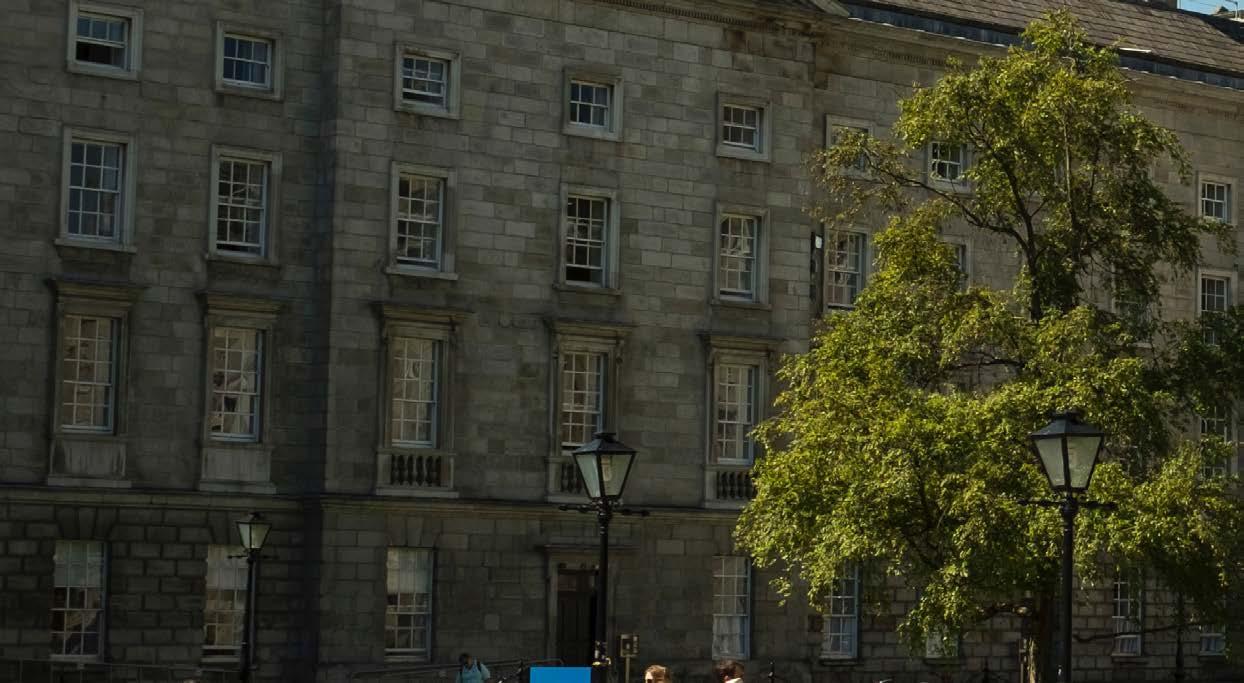
2 minute read
Dublin inward fdi grows but at slowing pace
Foreign Direct Investment (FDI) in Dublin continued to grow in Q1 2023, according to a new dataset from fDi Markets. There was over $520 million in capital investment across 20 projects in the Capital in the quarter, with the creation of almost 1,300 jobs (all values SA). Despite this growth, FDI was down by $307 million (37%) YoY. Investments in the Capital in Q1 compared favourably to other European cities, ranking 2nd to Amsterdam for both FDI per capita ($655, SA) and average project value ($26.2 million, SA). Madrid recorded the highest level of new FDI employment, with 2,420 jobs (SA) created in the quarter. FDI activity levels were down YoY in Q1 across all cities analysed, likely related to global economic uncertainty.
International Rankings Highlight Dublin’s International Standing
Internationally published benchmarks are a useful means of measuring a city’s performance relative to its peers, and recent indicators for Dublin confirm the city’s strong showing across a range of dimensions (see table opposite).
Third Level Education Specialisms
Two of Dublin’s universities, UCD and Trinity College Dublin, have had subject departments ranked within the top 50 globally by QS. According to the 2023 World University Rankings by Subject, UCD is Ireland’s strongest third level institution with 42 subjects achieving global rankings, including 13 in the world’s top 100. TCD’s English and literature department was placed at 22nd globally in the rankings which were primarily headed by US institutions. Overall the report stated that Ireland’s third level sector’s “continued improvement in QS’s subject rankings is a testament to its resilience, having overcome more severe budget restrictions over the past decade than most of its peers in Europe and the UK”. Improvements in science and technology programmes in the country were said to be particularly notable.
Comparatively Favourable Air Quality
Dublin is among the best EU cities for air quality, according to analysis from the European Environment Agency. The Capital ranked in joint 25th position of 365 cities alongside Cork but air quality in both cities was only rated as ‘fair’. Faro in Portugal was found to have the best air quality in Europe. The analysis pointed to traffic congestion as a major contributor towards poor air quality across the continent, and one of the main motivations for the pedestrianisation of cities, as 90% of city dwellers in the EU are said to be exposed to harmful levels of pollution.
A Literary Haven
Dublin has ranked in the top 5 cities in Europe for booklovers to travel to, based on the number of toprated libraries, bookshops and publishers in the city. The Capital was placed in 4th position in the ranking which was compiled by Holidu and Spain-Holiday. The ranking cited the Long Room and Book of Kells in Trinity College Dublin as key attractions, along with Marsh’s Library, the Winding Stair Bookshop, Hodges Figgis, and Ulysses Rare Books. The ranking was topped by Stuttgart and also placed Belfast within the European top 10 (9th position).
Public Transport Issues
Dublin’s public transport system has been rated by Greenpeace as the worst of 30 European capital cities. The rankings – which were topped jointly by Tallinn, Luxembourg and Valletta – was based on affordability and simplicity for users in purchasing tickets. According to Greenpeace, Dublin’s poor performance is partly due to it being “the only city analysed which does not have a fixed-price long-term ticket for all means of transport and available for all passengers”. While an electronic ticketing system and VAT exemption are positives for Dublin, the regular price of public transport in the Capital was the second-highest out of all cities analysed, standing at €3.16 per day.



